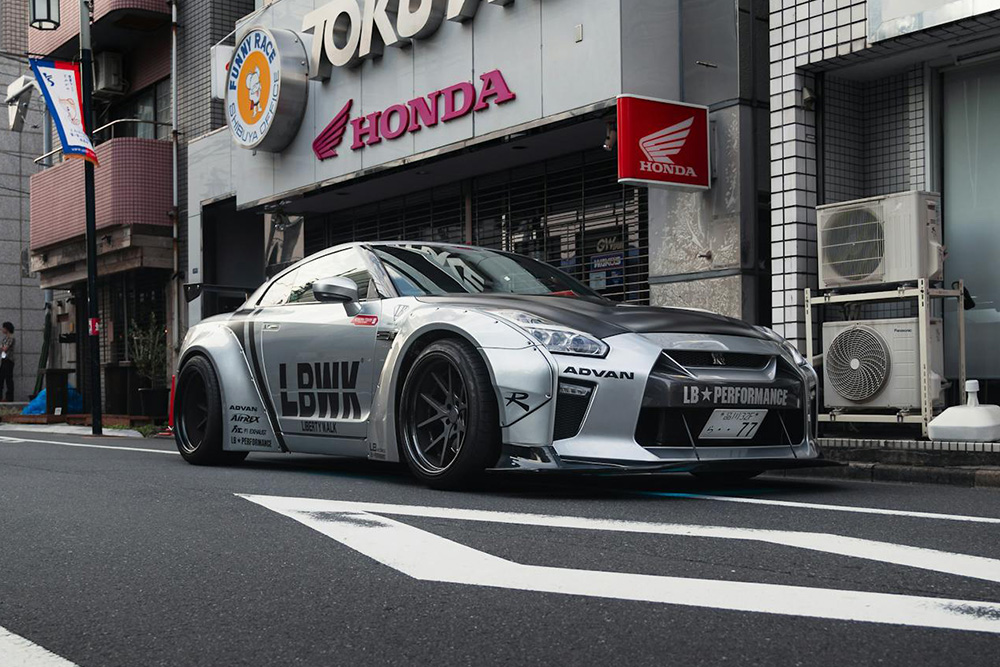When upgrading your Nissan GT-R in New Zealand, choosing between a big turbo conversion and upgrading your stock turbos represents one of the most significant decisions you’ll make for your vehicle’s performance. This article explores the key differences between these two popular modification paths, examining the costs involved, reliability considerations, and real-world performance gains you can expect on New Zealand roads.
Stock Turbo Upgrades: The Balanced Approach
Upgrading your stock turbos involves enhancing the factory IHI turbochargers with improved components whilst maintaining the original housing dimensions. This modification path typically includes upgrading the compressor wheels, turbine wheels, and bearings to more efficient designs. The stock location and fitment mean you won’t need extensive modifications to your engine bay or exhaust system.
In terms of performance gains, upgraded stock turbos can reliably produce between 550 to 650 horsepower at the wheels, depending on supporting modifications. This represents a substantial increase over the standard GT-R’s output whilst maintaining excellent street manners. The power delivery remains progressive and predictable, making it ideal for New Zealand’s varied driving conditions, from Auckland motorways to winding South Island passes.
The cost for quality stock turbo upgrades in New Zealand typically ranges from $3,500 to $6,000 for the turbochargers alone. When you factor in installation, tuning, and supporting modifications like injectors and fuel pumps, you’re looking at a total investment of $8,000 to $12,000. This makes it a more accessible option for many GT-R owners seeking improved performance without breaking the bank.
Big Turbo Conversions: Maximum Performance Territory
Big turbo conversions involve replacing the factory turbochargers with larger aftermarket units, often requiring custom manifolds, downpipes, and extensive modifications to accommodate the increased size. Popular options in New Zealand include Garrett GTX series, Precision Turbo, and BorgWarner EFR turbos, each offering different characteristics and power potentials.
The performance ceiling with big turbos is substantially higher, with well-built setups capable of producing 700 to over 1,000 horsepower. However, this comes with increased turbo lag and a more aggressive power delivery that requires experienced driving skills to manage effectively. The power band typically shifts higher in the RPM range, which can make daily driving less enjoyable, particularly in Auckland’s stop-start traffic.
Cost-wise, big turbo conversions represent a significant investment. The turbochargers themselves range from $5,000 to $10,000, but that’s just the beginning. Custom fabrication work, upgraded engine internals, stronger transmission components, and professional tuning can push the total cost to $25,000 to $40,000 or more. This doesn’t include potential upgrades to cooling systems, brakes, and suspension to handle the increased performance.
Reliability Considerations for New Zealand Conditions
Stock turbo upgrades generally maintain excellent reliability when properly installed and tuned. The retained factory fitment means less stress on surrounding components, and the moderate power increases stay within the design tolerances of most engine internals. Many GT-R owners in New Zealand run upgraded stock turbos for years without major issues, making them ideal for those who want improved performance without compromising daily usability.
Big turbo setups introduce more variables that can affect reliability. The increased boost pressure and power output place greater stress on engine internals, requiring upgraded pistons, rods, and head studs for safe operation. Heat management becomes critical, especially during summer, necessitating upgraded intercoolers and oil cooling systems. The transmission also requires strengthening to handle the increased torque, particularly the clutch packs in the dual-clutch system.
Maintenance requirements also differ significantly between the two options. Stock turbo upgrades typically follow similar service intervals to factory turbos, whilst big turbo setups often require more frequent oil changes, spark plug replacements, and general inspections due to the increased stress on components.
Supporting Modifications and Hidden Costs
Both upgrade paths require supporting modifications, but the extent varies considerably. Stock turbo upgrades typically need upgraded fuel injectors, a high-flow fuel pump, and a quality ECU tune. An aftermarket exhaust system helps maximise gains but isn’t always essential. These supporting mods add roughly $3,000 to $5,000 to your budget.
Big turbo conversions demand more extensive supporting modifications. Beyond fuel system upgrades, you’ll likely need forged engine internals, upgraded clutches, strengthened gearbox components, larger intercoolers, and comprehensive engine management solutions. Custom fabrication for piping and mounting can add thousands to the bill. Don’t forget about upgraded brakes and suspension to safely handle the increased performance – these often-overlooked items can add another $5,000 to $10,000.
Insurance and compliance costs in New Zealand also factor into the equation. Big turbo conversions will require certification and can significantly increase insurance premiums. Some insurers may even refuse coverage for heavily modified vehicles, making stock turbo upgrades a more practical choice for many owners.
Real-World Performance and Driving Experience
On New Zealand roads, upgraded stock turbos often provide the most useable performance. The power delivery remains smooth and predictable, with minimal turbo lag maintaining the GT-R’s renowned all-weather capability. This setup excels in real-world scenarios like overtaking on state highways or enjoying a spirited drive through the Coromandel Peninsula.
Big turbo GT-Rs transform into entirely different beasts, better suited for track days at Hampton Downs or Highlands Motorsport Park. The explosive power delivery and extended top-end pull create an exhilarating experience, but can overwhelm on public roads. Traction becomes a constant concern, even with the GT-R’s sophisticated all-wheel-drive system, particularly on New Zealand’s frequently wet roads.
Daily driveability is where the differences become most apparent. Stock turbo upgrades maintain comfortable daily driving characteristics, with smooth idle, good fuel economy when driven conservatively, and no issues with cold starts. Big turbo setups often suffer from rough idle, increased fuel consumption, and potential cold-start issues, making them less suitable for regular commuting.
Making the Right Choice for Your Needs
Your decision should align with your intended use and budget. If you primarily drive on public roads with occasional track days, upgraded stock turbos offer the best balance of performance, reliability, and cost. They provide substantial performance gains whilst maintaining the GT-R’s refined character and all-weather capability that suits New Zealand conditions perfectly.
Big turbo conversions suit dedicated enthusiasts seeking maximum performance for competitive motorsport or those building show cars. The significant investment and potential reliability trade-offs make sense only if you’re committed to the ongoing maintenance and have access to quality tuning and support services.
Consider your long-term plans for the vehicle as well. Stock turbo upgrades generally maintain better resale value, as many buyers prefer moderately modified vehicles. Heavily modified big turbo cars appeal to a smaller market, potentially affecting future sale prospects.
Need Expert GT-R Turbo Upgrade Advice?
Making the right turbo upgrade choice for your GT-R requires expert knowledge and experience with these sophisticated vehicles. At Dodson Motorsport, we specialise in high-performance GT-R servicing and modifications, offering professional guidance on both stock turbo upgrades and big turbo conversions. Contact our team today by calling 09 441 3635 to discuss your performance goals and discover the best upgrade path for your driving needs and budget.

 Looking for Dual Clutch transmission components outside of New Zealand?
Looking for Dual Clutch transmission components outside of New Zealand? 